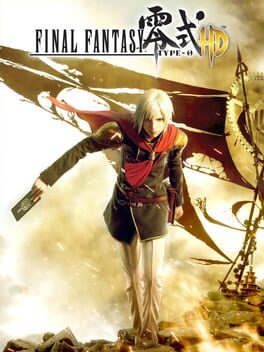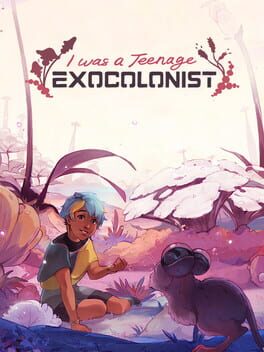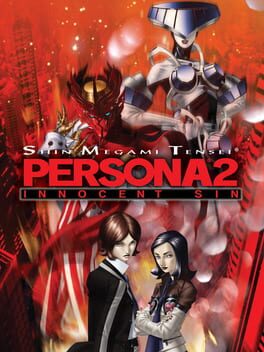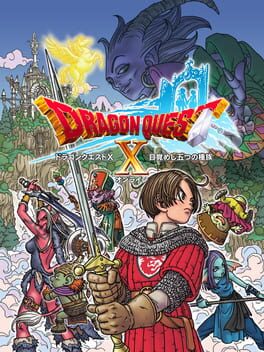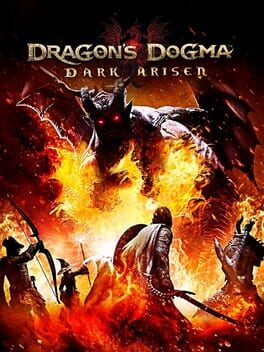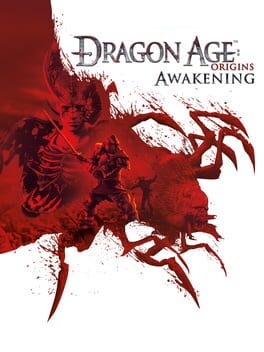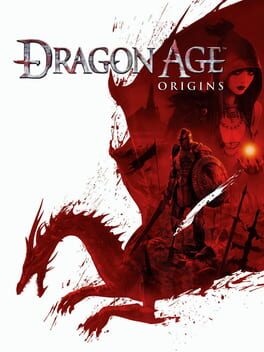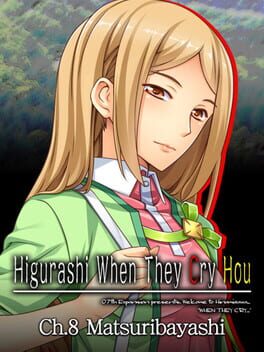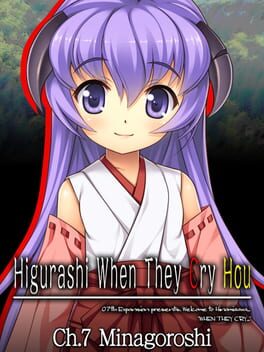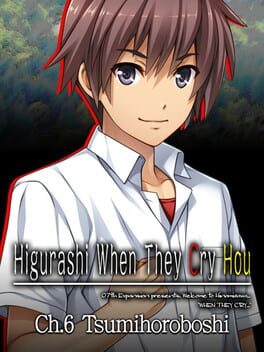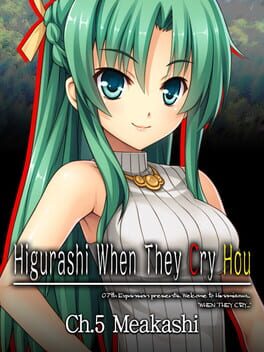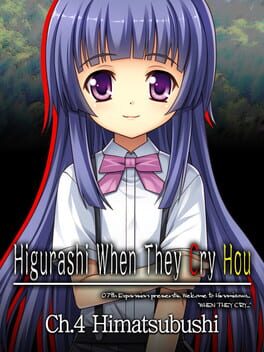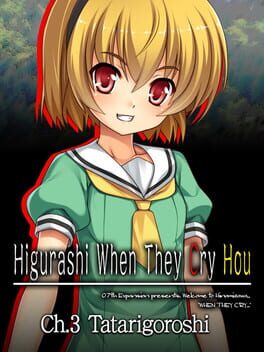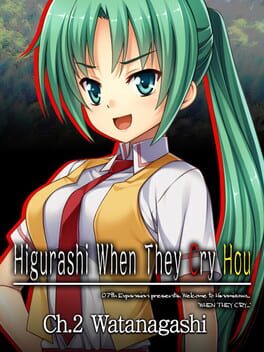getbehindmesatan
This review contains spoilers
{{I have not yet done NG+, which I understand recontextualises things a fair bit, so I fully acknowledge this may be a very premature review - but I think it's worth writing down my thoughts for now so I can see how they change later}}
Like the Fabula Nova Crystallis subseries in general, this is a rather messy game. It throws out a lot of really interesting concepts - military academy students pushed into all-out war, a world where the dead are erased from memory, a darker and bloodier FF story - but ultimately the execution really holds it back.
And it's a shame, because I don't think any of its actual plot beats are necessarily bad or missteps (although Aria coming back to mourn the enemy General near the finale is incredibly random). But the game just doesn't utilise any of them effectively.
Why does the game open with 10 minutes of cutscenes mourning some random redshirt we have no context for? Why is the transition from fighting the war against Milites to the apocalypse done in like 2 lines of exposition? I think the most egregious case of poor execution is Machina - his anger and grief over Class Zero letting his brother die is understandable, except this is a world where dead people disappear from your memory. Now, you can interpret it as really him projecting his worry about losing Rem onto the brother he doesn't really know; he's worried he can't trust her with Class Zero either. Fair enough, but it's still a really generic plot beat, and one that doesn't really benefit from the whole amnesia angle anyway. It's a waste of a premise.
Now, there are ways in which I think this game's fragmented narrative works, or at least has potential to work. In a way it kind of mirrors the weird callousness born of forgetting the dead; the way Milites is so casually disposed of so the game can move onto the apocalypse is whiplash-inducingly rapid, but it kinda embodies the way everyone in universe is so quick to just completely forget the vanquished ever existed. And there are enough hints here and there that this is not really a story of black-and-white morality that the lack of cohesion kinda makes sense; Class Zero aren't active agents, they're just weapons of war. And the finale kind of alludes to this with the insistence they need to find their own path, although I think having this end with them dying horribly seems... not conducive with that theme.
I think also the lack of characterisation for the main cast is understandable given so many characters; Class Zero is kind of characterised collectively, with a bit of special focus given to Ace, Rem, and Machina.
I'm well away this is all stuff NG+ will probably pick up to some extent. But I feel like the first playthrough has fundamentally flawed enough storytelling I'm not optimistic NG+ it's going to be an improvement; if it recontextualises the story it'll be through brute force exposition and not because it suddenly turns the fragmented original into a work of genius art. But I'm open to being left a fool here.
It does frustrate me though that Type-0 potential to be a really interesting take on FF that's darker and gorier and tragic, and yet it really doesn't live up to this. It's the kind of game where I think had they leaned into the atmosphere it could have been forgiven a multitude of sins; after all, FF8 is as messy but my favourite FF game simply because it has an unrivalled Vibe.
But for all the fact that this is the FF game where all the characters end up dead and you see a chocobo bloodily murdered in the first few minutes... it doesn't feel like a genuinely darker game. It doesn't even feel like a tragedy; Class Zero dying feels like a random attempt to go for the feels, not their logically inevitable fate, and ends up paling next to something like FF10. The blood and gore aren't quite superficial enough to make this game feel like an embarrassingly childish attempt at maturity, but they mask what is really not a super sophisticated narrative, IMO.
That aside, I liked the gameplay a fair bit. Killsight is a fun mechanic and I appreciate the way it actively rewards paying attention to enemy attack patterns; 'do more damage for paying attention' is always more fun than 'take more damage for not paying attention'. Magic is also satisfying to use.
I feel like the game has an odd problem, especially later on, where if you're not perfectly skilled at hitting Killsight it can be less hassle to just normal attack bash to death. But I think it's not really meant to be a difficult game once you get used to it, and most of the difficulty is within the Expert Trials. I also felt there wasn't much incentive to experiment with different abilities, given A) a normal attack on Killsight will usually suffice, B) if not, magic probably does more damage, C) you only have 2 slots, shared with magic, and you can't change them on demand through a mission, and D) they are all niche enough you have to really bother to figure out when they're useful. I'm sure my experience was poorer for using them and expert players are laughing at my noobishness, but it's a bit weird I got through the whole game without really finding them that useful.
The free time academy/exploration stuff is also just strange. It feels like you have too much time and have to go out of your way to chew it up. I'm sure people going for 100% completion or all the expert trials felt differently, but it just feels very lame in comparison to, say, Persona.
The use of a world map was also weird. I feel like it would have been totally fine for this to be a purely mission-based handheld game like KH Days and the inclusion of towns and dungeons felt tokenistic. I did actually enjoy the RTS battles though.
All in all, this game has enough interesting ideas and is enjoyable enough I certainly wouldn't call it bad, but it is a shame that (at least on the first playthrough) it doesn't reach that potential. I don't see myself doing NG+ for a while since I'm a bit tired of this game lol but fingers crossed it changes my opinion somewhat.
Like the Fabula Nova Crystallis subseries in general, this is a rather messy game. It throws out a lot of really interesting concepts - military academy students pushed into all-out war, a world where the dead are erased from memory, a darker and bloodier FF story - but ultimately the execution really holds it back.
And it's a shame, because I don't think any of its actual plot beats are necessarily bad or missteps (although Aria coming back to mourn the enemy General near the finale is incredibly random). But the game just doesn't utilise any of them effectively.
Why does the game open with 10 minutes of cutscenes mourning some random redshirt we have no context for? Why is the transition from fighting the war against Milites to the apocalypse done in like 2 lines of exposition? I think the most egregious case of poor execution is Machina - his anger and grief over Class Zero letting his brother die is understandable, except this is a world where dead people disappear from your memory. Now, you can interpret it as really him projecting his worry about losing Rem onto the brother he doesn't really know; he's worried he can't trust her with Class Zero either. Fair enough, but it's still a really generic plot beat, and one that doesn't really benefit from the whole amnesia angle anyway. It's a waste of a premise.
Now, there are ways in which I think this game's fragmented narrative works, or at least has potential to work. In a way it kind of mirrors the weird callousness born of forgetting the dead; the way Milites is so casually disposed of so the game can move onto the apocalypse is whiplash-inducingly rapid, but it kinda embodies the way everyone in universe is so quick to just completely forget the vanquished ever existed. And there are enough hints here and there that this is not really a story of black-and-white morality that the lack of cohesion kinda makes sense; Class Zero aren't active agents, they're just weapons of war. And the finale kind of alludes to this with the insistence they need to find their own path, although I think having this end with them dying horribly seems... not conducive with that theme.
I think also the lack of characterisation for the main cast is understandable given so many characters; Class Zero is kind of characterised collectively, with a bit of special focus given to Ace, Rem, and Machina.
I'm well away this is all stuff NG+ will probably pick up to some extent. But I feel like the first playthrough has fundamentally flawed enough storytelling I'm not optimistic NG+ it's going to be an improvement; if it recontextualises the story it'll be through brute force exposition and not because it suddenly turns the fragmented original into a work of genius art. But I'm open to being left a fool here.
It does frustrate me though that Type-0 potential to be a really interesting take on FF that's darker and gorier and tragic, and yet it really doesn't live up to this. It's the kind of game where I think had they leaned into the atmosphere it could have been forgiven a multitude of sins; after all, FF8 is as messy but my favourite FF game simply because it has an unrivalled Vibe.
But for all the fact that this is the FF game where all the characters end up dead and you see a chocobo bloodily murdered in the first few minutes... it doesn't feel like a genuinely darker game. It doesn't even feel like a tragedy; Class Zero dying feels like a random attempt to go for the feels, not their logically inevitable fate, and ends up paling next to something like FF10. The blood and gore aren't quite superficial enough to make this game feel like an embarrassingly childish attempt at maturity, but they mask what is really not a super sophisticated narrative, IMO.
That aside, I liked the gameplay a fair bit. Killsight is a fun mechanic and I appreciate the way it actively rewards paying attention to enemy attack patterns; 'do more damage for paying attention' is always more fun than 'take more damage for not paying attention'. Magic is also satisfying to use.
I feel like the game has an odd problem, especially later on, where if you're not perfectly skilled at hitting Killsight it can be less hassle to just normal attack bash to death. But I think it's not really meant to be a difficult game once you get used to it, and most of the difficulty is within the Expert Trials. I also felt there wasn't much incentive to experiment with different abilities, given A) a normal attack on Killsight will usually suffice, B) if not, magic probably does more damage, C) you only have 2 slots, shared with magic, and you can't change them on demand through a mission, and D) they are all niche enough you have to really bother to figure out when they're useful. I'm sure my experience was poorer for using them and expert players are laughing at my noobishness, but it's a bit weird I got through the whole game without really finding them that useful.
The free time academy/exploration stuff is also just strange. It feels like you have too much time and have to go out of your way to chew it up. I'm sure people going for 100% completion or all the expert trials felt differently, but it just feels very lame in comparison to, say, Persona.
The use of a world map was also weird. I feel like it would have been totally fine for this to be a purely mission-based handheld game like KH Days and the inclusion of towns and dungeons felt tokenistic. I did actually enjoy the RTS battles though.
All in all, this game has enough interesting ideas and is enjoyable enough I certainly wouldn't call it bad, but it is a shame that (at least on the first playthrough) it doesn't reach that potential. I don't see myself doing NG+ for a while since I'm a bit tired of this game lol but fingers crossed it changes my opinion somewhat.
An insanely addictive game with engrossing life sim/RPG elements intermingled with the story. While I generally didn't find the actual writing particularly compelling, the gameplay and story integration is very satisfying and the characters are likeable and interesting enough. I hesitate to give it a full 5 stars because while it's a very finely-crafted experience I don't know that it's one that will necessary stay with me for a while, but it's up there as some of the most fun I have had with a game.
Having played all that's available in the free trial (up to abt patch 2.3?) it's a decent game. The v1 story is really nothing to write home about til the v end but has that classic DQ town-of-the-week structure, but v2 gets a bit more interesting. Combat can be a bit of a drag and I'm honestly not a big fan of this hybrid turn-based real-time system but it's decent enough.
I'm not convinced English speakers are necessarily missing out on some secret gem based off the trial, but from what I hear the story does get v crazy later on and it's a decent enough time if you like the MMO grind or really enjoy DQ.
I'm not convinced English speakers are necessarily missing out on some secret gem based off the trial, but from what I hear the story does get v crazy later on and it's a decent enough time if you like the MMO grind or really enjoy DQ.
This review contains spoilers
Great game with fun combat and enjoyable quests, but I feel a bit insane seeing people talk about how the real game starts in the postgame, which consists entirely of a boss rush, a few overworld dragons, and the dlc dungeon you can do at any time prior.
It is a little disappointing the game totally segues from an interesting quest-based experience to pure dungeon crawling/boss fighting post-game. It's not as if the story itself is particularly interesting either (tho they try to do some cool stuff with the Seneschal), but there's just something about the quest design that's very satisfying.
It is a little disappointing the game totally segues from an interesting quest-based experience to pure dungeon crawling/boss fighting post-game. It's not as if the story itself is particularly interesting either (tho they try to do some cool stuff with the Seneschal), but there's just something about the quest design that's very satisfying.
A fun expansion to the original game with interesting concepts and just very fun questing all around. Even though it ends up not being particularly fleshed out the interplay of managing the arldom, making decisions, and pursuing various leads makes for an oddly compelling gameplay loop.
Combat remains a bit of a drag as in base Origins but I think the amount of combat is paced a bit better so it doesn't frustrate me as much. The campaign could have been a bit longer to play with its ideas more but I suppose it's better to end on a high than drag itself out.
The biggest flaw in Awakening is probably just the companions. It's disappointing they removed the ability to talk with them on demand - it really diminishes their character, especially in such a short campaign - but they're also, imo, just... not very interesting?
Anders is funny and Justice is an interesting concept, but aside from that they're all just a bit meh. To their credit none of them are outright annoying aside from Oghren, but I just really don't feel any attachment to them in the slightest.
Combat remains a bit of a drag as in base Origins but I think the amount of combat is paced a bit better so it doesn't frustrate me as much. The campaign could have been a bit longer to play with its ideas more but I suppose it's better to end on a high than drag itself out.
The biggest flaw in Awakening is probably just the companions. It's disappointing they removed the ability to talk with them on demand - it really diminishes their character, especially in such a short campaign - but they're also, imo, just... not very interesting?
Anders is funny and Justice is an interesting concept, but aside from that they're all just a bit meh. To their credit none of them are outright annoying aside from Oghren, but I just really don't feel any attachment to them in the slightest.
2009
Good game with a world that seems kinda generic fantasy with a slight edge to it at first but has just enough of a twist to it to be really interesting. The approach to religion is especially interesting, I think, in that it religion isnt treated as just Lore but as a worldview; the Chantry's belief in a good God who turned his back on humanity because of their wickedness has a lot of implications for the way someone views the world (challenged in turn by Leliana's own quiet heresy in feeling the Maker's presence still) in a way that fantasy faiths don't always.
The game's biggest flaw imo is the combat. Part of this may just be personal taste - I think really the appeal is more tactical like an RTS than RPGish - but I also just think the game is a bit overbloated with abilities. Throwing a million possible skills at the player doesn't equal build diversity, even with specialisations to try and bandage the problems. Dungeons are also just a bit too long that mediocre combat becomes actively painful at times; had they reduced the amount of fighting in certain parts it wouldn't be anywhere near as frustrating.
But all in all a fun and engrossing game with fascinating lore, good story with interesting choices, and a likeable enough cast.
The game's biggest flaw imo is the combat. Part of this may just be personal taste - I think really the appeal is more tactical like an RTS than RPGish - but I also just think the game is a bit overbloated with abilities. Throwing a million possible skills at the player doesn't equal build diversity, even with specialisations to try and bandage the problems. Dungeons are also just a bit too long that mediocre combat becomes actively painful at times; had they reduced the amount of fighting in certain parts it wouldn't be anywhere near as frustrating.
But all in all a fun and engrossing game with fascinating lore, good story with interesting choices, and a likeable enough cast.
This review contains spoilers
i'm not entirely sure how i feel about matsuribayashi. it's ok. i think it's telling that it took me the second longest out of any higurashi chapter to actually finish (about a month and a half), after onikakushi (5 months), which I almost but not quite outright disliked.
It was a Slog. I have a big aversion to stories that are just way too long for their own good, but the thing is up until now I genuinely felt that Higurashi managed to keep things fresh and interesting enough this massive sprawling length never became a detriment. That's not to say Ryukishi isnt way too verbose and repetitive for his own good, but on the whole every instalment felt like a cool and interesting twist on the Higurashi formula with its own distinct atmosphere, without needing to pull crazy genre shifts or resort to gimmicks. Even the unnerving creeping sense of doom of Watanagashi is very different to the tragic descent into madness of Meakashi, for instance.
Matsuribayashi... to be honest, I did not feel accomplished this. For sure, it's a new type of story for Higurashi, more of an actiony conspiracy theory with a dash of politics. But while perhaps new for Higurashi it feels like a fairly generic story in general. Stuff like 'the games club manage to successfully wage guerilla warfare against hardened mercenaries' is easy to criticise on the basis of unrealism - I don't personally think unrealism or being shonen-esque an inherently bad thing, but it feels weird and off for the kind of story Higurashi has been up til now, and especially by comparison seems like a cheap resolution.
Now, I get that this is a deliberate bait and switch in a sense. Ryukishi offers you a psychological horror where you can trust nobody full of the threat of monsters at every turn, and then gradually takes it apart to promote trusting your friends, working together with your community, extending grace even to the monsters. I get the reasons why it's being done, I get there's a thematic point to Scooby Doo-ing it all. But the sticking point for me is that I feel like the story Higurashi turns into is a lot less interesting than the one it began as.
I'm certainly not against these kinds of bait and switches (ask me why Hell Bent from Doctor Who is one of my favourite pieces of fiction ever). But the crucial thing for me is that the story it ends up as should be just as, if not more interesting than what was promised, or at least more satisfying (even if the initial story has more of an allure of deep lore and shocking reveals). But I don't know, I... just don't feel like creepy rural horror mystery descending into action thriller is an interesting turn of events. And ironically even though Ryukishi justifies the switch by saying that Higurashi's worldview is a nonviolent one, it still turns into the kind of story where the primary means of solving problems IS through action (if not actually killing): breaking into the bad guys' base with guns.
Now, with all that said, it's not a bad ending. None of the narrative decisions it makes are bad. It's no Rise of Skywalker, making such actively ridiculous choices the promise of the previous entries is ruined. It has good moments, and Takano is such a fascinatingly sketched character. But I can't help but feel like it's largely an exercise in ticking plot boxes.
And maybe that's just an inevitable result of a finale to a mystery where the mystery has already been revealed, but part of me feels like the entire government conspiracy angle just pushes the stakes too high where the story has no choice but to shift into an action thriller to solve it. Teenagers in a horror story might be able to fight a monster, but how can they fight hardened mercenaries? There's no choice but to shift genres.
But at the end of the day the above is largely a personal gripe. Obviously I feel strongly about this and it diminished my enjoyment, but I get where Ryukishi is coming from enough I hesitate to say This Is A Flaw, and I don't want my criticms to basically just be 'you should have written a fundamentally different story'.
One thing I did think was actively bad tho and tbh has probably seriously hurt my opinion of Matusribayashi is Fragment Connecting. It felt like 90% painstakingly spoonfeeding you plot points you should already know or have been able to piece together. We often hear 'show don't tell' but I genuinely think Fragment Connecting was an example of this gone way too far; some things can be left to casual exposition. Ironically it felt like the anti-Onikakushi; it's even more useless filler but at least this time it's plot relevant! Admittedly I'd imagine this would have been a helpful refresher if you were actually reading the Higurashi instalments as they came out.
The rest of Matsuribayashi is better, although it still feels like it doesn't really pick up til Irie escapes the clinic, and even then the action scenes are kind've annoying (I did like infiltrating the clinic though). But it's fine and servicable.
Aside from that, Hanyuu still feels like a bit of a weak link characterisation wise, especially since Matsuribayashi brings a lot in to weigh on her. She's not bad or unlikeable, but I just... don't feel the same attachment to her I do the others. I think Higurashi's strength on the whole is generally the characters, and I think Matsuribayashi did a great job with fleshing ouit Takano last minute tremendously, but Hanyuu is just... I don't know.
On the whole I would say I enjoyed Higurashi, and I wouldn't say my tepid feelings for Matsuribayashi are enough to drag the rest of it down, but I also don't think I especially love it (tho I still need to read Saikoroshi). Keeping me engrossed enough to sit through one million words and eight arcs is an impressive feat in itself, and I'll always have a soft spot for the characters, but I don't know that this will be something that stays with me. But my feelings about Matsuribayashi are in flux even now so I guess we will see.
It was a Slog. I have a big aversion to stories that are just way too long for their own good, but the thing is up until now I genuinely felt that Higurashi managed to keep things fresh and interesting enough this massive sprawling length never became a detriment. That's not to say Ryukishi isnt way too verbose and repetitive for his own good, but on the whole every instalment felt like a cool and interesting twist on the Higurashi formula with its own distinct atmosphere, without needing to pull crazy genre shifts or resort to gimmicks. Even the unnerving creeping sense of doom of Watanagashi is very different to the tragic descent into madness of Meakashi, for instance.
Matsuribayashi... to be honest, I did not feel accomplished this. For sure, it's a new type of story for Higurashi, more of an actiony conspiracy theory with a dash of politics. But while perhaps new for Higurashi it feels like a fairly generic story in general. Stuff like 'the games club manage to successfully wage guerilla warfare against hardened mercenaries' is easy to criticise on the basis of unrealism - I don't personally think unrealism or being shonen-esque an inherently bad thing, but it feels weird and off for the kind of story Higurashi has been up til now, and especially by comparison seems like a cheap resolution.
Now, I get that this is a deliberate bait and switch in a sense. Ryukishi offers you a psychological horror where you can trust nobody full of the threat of monsters at every turn, and then gradually takes it apart to promote trusting your friends, working together with your community, extending grace even to the monsters. I get the reasons why it's being done, I get there's a thematic point to Scooby Doo-ing it all. But the sticking point for me is that I feel like the story Higurashi turns into is a lot less interesting than the one it began as.
I'm certainly not against these kinds of bait and switches (ask me why Hell Bent from Doctor Who is one of my favourite pieces of fiction ever). But the crucial thing for me is that the story it ends up as should be just as, if not more interesting than what was promised, or at least more satisfying (even if the initial story has more of an allure of deep lore and shocking reveals). But I don't know, I... just don't feel like creepy rural horror mystery descending into action thriller is an interesting turn of events. And ironically even though Ryukishi justifies the switch by saying that Higurashi's worldview is a nonviolent one, it still turns into the kind of story where the primary means of solving problems IS through action (if not actually killing): breaking into the bad guys' base with guns.
Now, with all that said, it's not a bad ending. None of the narrative decisions it makes are bad. It's no Rise of Skywalker, making such actively ridiculous choices the promise of the previous entries is ruined. It has good moments, and Takano is such a fascinatingly sketched character. But I can't help but feel like it's largely an exercise in ticking plot boxes.
And maybe that's just an inevitable result of a finale to a mystery where the mystery has already been revealed, but part of me feels like the entire government conspiracy angle just pushes the stakes too high where the story has no choice but to shift into an action thriller to solve it. Teenagers in a horror story might be able to fight a monster, but how can they fight hardened mercenaries? There's no choice but to shift genres.
But at the end of the day the above is largely a personal gripe. Obviously I feel strongly about this and it diminished my enjoyment, but I get where Ryukishi is coming from enough I hesitate to say This Is A Flaw, and I don't want my criticms to basically just be 'you should have written a fundamentally different story'.
One thing I did think was actively bad tho and tbh has probably seriously hurt my opinion of Matusribayashi is Fragment Connecting. It felt like 90% painstakingly spoonfeeding you plot points you should already know or have been able to piece together. We often hear 'show don't tell' but I genuinely think Fragment Connecting was an example of this gone way too far; some things can be left to casual exposition. Ironically it felt like the anti-Onikakushi; it's even more useless filler but at least this time it's plot relevant! Admittedly I'd imagine this would have been a helpful refresher if you were actually reading the Higurashi instalments as they came out.
The rest of Matsuribayashi is better, although it still feels like it doesn't really pick up til Irie escapes the clinic, and even then the action scenes are kind've annoying (I did like infiltrating the clinic though). But it's fine and servicable.
Aside from that, Hanyuu still feels like a bit of a weak link characterisation wise, especially since Matsuribayashi brings a lot in to weigh on her. She's not bad or unlikeable, but I just... don't feel the same attachment to her I do the others. I think Higurashi's strength on the whole is generally the characters, and I think Matsuribayashi did a great job with fleshing ouit Takano last minute tremendously, but Hanyuu is just... I don't know.
On the whole I would say I enjoyed Higurashi, and I wouldn't say my tepid feelings for Matsuribayashi are enough to drag the rest of it down, but I also don't think I especially love it (tho I still need to read Saikoroshi). Keeping me engrossed enough to sit through one million words and eight arcs is an impressive feat in itself, and I'll always have a soft spot for the characters, but I don't know that this will be something that stays with me. But my feelings about Matsuribayashi are in flux even now so I guess we will see.
This review contains spoilers
Despite the fact the first 10 sub-chapters or so are basically going back and forth with Child Services I felt like the pacing on this was pretty good? The events themselves are repetitive, but not the characters' reactions or the drama it creates, and it added a lot to the suspense wondering 'how the hell does this end in a massacre?'
...With that said, I don't think it quite lives up to this suspense. Every Higurashi chapter so far imo has fallen prey to a trap of 'interesting and engrossing plot that builds up to a climax midway and then the tension completely dies' (except for Onikakushi and Watanagashi, which I'd say more straightforwardly continually ratchet up the tension). But it feels especially unsatisfying here because saving Satoko takes up a huge chunk of the chapter.
The actual scene where the main cast get killed is super chilling, but to immediately follow it up with them all reuniting as ghosts is a bit saccharine I feel? Tsumihoroboshi also had a bit of mood whiplash with Rena and Keiichi's fight that I didn't entirely vibe with, but I think it's fair to say it at least means something after all the heaviness of the previous arcs + Rena trying to blow up the school. But I don't know... this felt like it diminished it a little. I guess because also this arc isn't especially heavy on the oppressive horror atmosphere that pervades a lot of the others, so it feels like when we finally get a taste of that it immediately gets undercut.
Also I think the absolute worst thing for Higurashi's pacing is characters' internal monologues. People malign the Onikakushi slice of life stuff a lot (and rightfully), but Rika is just constantly going on about fighting destiny and believing in a miracle and whatnot and it's just... I get the point, but it could have been dialled back.
And on that note, this chapter pushes 'if everyone believes they can make a miracle happen' so hard it was genuinely starting to sound less like typical anime power of friendship and more like that culty pseudoscience self-help nonsense that teach bad things happening to you is because you didn't do enough positive thinking. I understand this isn't the intention here, and 'keep on believing and fighting' is a valuable message in the context of the story, and I'm not trying to be cynical here - it's just it gets hammered home so. Damn. Much.
This review sounds pretty critical, but I generally enjoyed this chapter (and Higurashi so far) a lot - I'm just more interested in trying to dissect what didn't work for me than what did. But all in all it's a nice chapter with lots of good character moments and answers to mysteries, and I am eager to get into the finale (though perhaps not right away).
Currently I'd rank the arcs at: Meakashi > Tatarigoroshi > Watanagashi > Tsumihoroboshi > Minagoroshi > Himatsubushi > Onikakushi
...With that said, I don't think it quite lives up to this suspense. Every Higurashi chapter so far imo has fallen prey to a trap of 'interesting and engrossing plot that builds up to a climax midway and then the tension completely dies' (except for Onikakushi and Watanagashi, which I'd say more straightforwardly continually ratchet up the tension). But it feels especially unsatisfying here because saving Satoko takes up a huge chunk of the chapter.
The actual scene where the main cast get killed is super chilling, but to immediately follow it up with them all reuniting as ghosts is a bit saccharine I feel? Tsumihoroboshi also had a bit of mood whiplash with Rena and Keiichi's fight that I didn't entirely vibe with, but I think it's fair to say it at least means something after all the heaviness of the previous arcs + Rena trying to blow up the school. But I don't know... this felt like it diminished it a little. I guess because also this arc isn't especially heavy on the oppressive horror atmosphere that pervades a lot of the others, so it feels like when we finally get a taste of that it immediately gets undercut.
Also I think the absolute worst thing for Higurashi's pacing is characters' internal monologues. People malign the Onikakushi slice of life stuff a lot (and rightfully), but Rika is just constantly going on about fighting destiny and believing in a miracle and whatnot and it's just... I get the point, but it could have been dialled back.
And on that note, this chapter pushes 'if everyone believes they can make a miracle happen' so hard it was genuinely starting to sound less like typical anime power of friendship and more like that culty pseudoscience self-help nonsense that teach bad things happening to you is because you didn't do enough positive thinking. I understand this isn't the intention here, and 'keep on believing and fighting' is a valuable message in the context of the story, and I'm not trying to be cynical here - it's just it gets hammered home so. Damn. Much.
This review sounds pretty critical, but I generally enjoyed this chapter (and Higurashi so far) a lot - I'm just more interested in trying to dissect what didn't work for me than what did. But all in all it's a nice chapter with lots of good character moments and answers to mysteries, and I am eager to get into the finale (though perhaps not right away).
Currently I'd rank the arcs at: Meakashi > Tatarigoroshi > Watanagashi > Tsumihoroboshi > Minagoroshi > Himatsubushi > Onikakushi
This review contains spoilers
All up a real roller-coaster. The pacing is the weirdest of them all so far imo, but not necessarily bad, but it makes up for it with tons of super raw moments (Rena's tearful confession to her friends, Rika confronting Rena, Keiichi remembering the events of Onikakushi, basically the whole ending sequence and especially the rooftop duel).
I will say though, while in hindsight the big picture of this chapter feels satisfying and makes sense, I found this probably the most annoying to actually read since Onikakushi - I guess because the odd pacing makes you wonder why certain elements are being thrown out and a decent chunk of it does kind've feel like an Onikakushi redux til it finally clicks that this is actually a tragedy-farce.
Also I found some moments didn't really hit right at first until elaboration - like, the flashback where Keiichi shoots a kid in the eye was genuinely disturbing, but the initial framing of 'Keiichi used to menace little kids with a model gun and feels horribly guilty over it' felt a little overdone. It wasn't that the events themselves were absurd, but the framing felt a little vague and undercooked. I guess telling not showing, essentially. And ofc it's fine in the end bc we do get that detail, but it did stand out to me.
I will say though, while in hindsight the big picture of this chapter feels satisfying and makes sense, I found this probably the most annoying to actually read since Onikakushi - I guess because the odd pacing makes you wonder why certain elements are being thrown out and a decent chunk of it does kind've feel like an Onikakushi redux til it finally clicks that this is actually a tragedy-farce.
Also I found some moments didn't really hit right at first until elaboration - like, the flashback where Keiichi shoots a kid in the eye was genuinely disturbing, but the initial framing of 'Keiichi used to menace little kids with a model gun and feels horribly guilty over it' felt a little overdone. It wasn't that the events themselves were absurd, but the framing felt a little vague and undercooked. I guess telling not showing, essentially. And ofc it's fine in the end bc we do get that detail, but it did stand out to me.
This review contains spoilers
Pretty good, Shion's state of mind and the twins' sense of self-identity is really fascinating, the 'one year earlier' stuff clarifies a lot, and it's impressive how it puts such a different spin on what was happening behind the scenes in Watanagashi without seeming like an ass-pull (although I'll admit the one thing I'm a bit 'oh, well that's kindve contrived' is the significance of Keiichi not giving Mion the doll just being 'she rang up Shion to complain')
I will say that while it's really interesting to see Shion's side of things and recontextualise Watanagashi a lot, I did feel like the pacing dragged a bit knowing what would happen, especially after about the middle third?
Incidentally not really seeing Satoko and Rena since Tatarigoroshi made me really realise how much I've come to appreciate and care for these characters whenever they briefly turned up here.
I will say that while it's really interesting to see Shion's side of things and recontextualise Watanagashi a lot, I did feel like the pacing dragged a bit knowing what would happen, especially after about the middle third?
Incidentally not really seeing Satoko and Rena since Tatarigoroshi made me really realise how much I've come to appreciate and care for these characters whenever they briefly turned up here.
This review contains spoilers
First and foremost: fuck the mahjong section. It sucked. I've built up a pretty good tolerance for slice of life, and I'm sure if I ever played it mahjong would be a beautiful and intricate game, but that scene was awful. It did not help reading in Japanese I'm sure but I can't imagine it was any better in English.
That aside, a nice, short break from the usual time loop formula which was starting to drag a little. On the whole it doesn't feel like there's a ton to dissect or theorize about here (and I think it's telling the All-Cast Review Session is 90% goofy antics), but it does feel like Rika finally gets some limelight of her own, even if she's still hugely veiled in mystery. There's definitely totally mundane explanations for her knowing the murders in advance, but I like to think she can have some psychic powers, as a treat.
I'm also sure that a lot of what's alluded to here will be important later, it just doesn't have that same ripeness for theorising earlier chapters did I think.
Akasaka didn't feel super in-depth, but his relationships with Ooishi and Rika in particular felt charming enough.
It's interesting that the events that end up happening seem to be identical to Tatarigoroshi, except Ooishi survives - is this significant? Or is it genuinely just him being sick that branched the timeline? Definitely very keen to get into the Answer Arcs (but maybe I'll mull on some mysteries a bit more).
That aside, a nice, short break from the usual time loop formula which was starting to drag a little. On the whole it doesn't feel like there's a ton to dissect or theorize about here (and I think it's telling the All-Cast Review Session is 90% goofy antics), but it does feel like Rika finally gets some limelight of her own, even if she's still hugely veiled in mystery. There's definitely totally mundane explanations for her knowing the murders in advance, but I like to think she can have some psychic powers, as a treat.
I'm also sure that a lot of what's alluded to here will be important later, it just doesn't have that same ripeness for theorising earlier chapters did I think.
Akasaka didn't feel super in-depth, but his relationships with Ooishi and Rika in particular felt charming enough.
It's interesting that the events that end up happening seem to be identical to Tatarigoroshi, except Ooishi survives - is this significant? Or is it genuinely just him being sick that branched the timeline? Definitely very keen to get into the Answer Arcs (but maybe I'll mull on some mysteries a bit more).
This review contains spoilers
Pretty good! Ch2 was an improvement over 1 I thought in that the slice-of-life first half is still driven by an actual plot (what's the deal w Shion?), but this taking it even further with Satoko worked really well.
If there's one complaint I have, it's that I felt like the plot kind've peaks with the night of the Festival, and then... keeps going for a good while. And it has a lot of good, exciting/sad/intriguing moments still. But I think since I'm used to the time loop format now, I basically checked out after Keiichi kills Satoko's uncle thinking 'OK, and then Keiichi's gonna die horribly any moment now'. I'm not sure the tension and horror particularly works for me when I know it's happening for the third time. (It also doesn't help that the volcano gas thing feels like a ridiculous escalation - and yes, it's an interesting mystery, but it feels like such a wild ass pull I really need to put my faith in future installments for this to feel satisfying).
With that said, the glimpses of Satoko's sheer terror triggered by random innocuous actions was really effective, enough that it doesn't really matter her uncle is barely a character despite being crucial to the chapter. That one TIP with the sad picture of Satoko in the background over stats on child abuse w a scare chord playing sounds like a shitpost but it was genuinely so chilling too.
If there's one complaint I have, it's that I felt like the plot kind've peaks with the night of the Festival, and then... keeps going for a good while. And it has a lot of good, exciting/sad/intriguing moments still. But I think since I'm used to the time loop format now, I basically checked out after Keiichi kills Satoko's uncle thinking 'OK, and then Keiichi's gonna die horribly any moment now'. I'm not sure the tension and horror particularly works for me when I know it's happening for the third time. (It also doesn't help that the volcano gas thing feels like a ridiculous escalation - and yes, it's an interesting mystery, but it feels like such a wild ass pull I really need to put my faith in future installments for this to feel satisfying).
With that said, the glimpses of Satoko's sheer terror triggered by random innocuous actions was really effective, enough that it doesn't really matter her uncle is barely a character despite being crucial to the chapter. That one TIP with the sad picture of Satoko in the background over stats on child abuse w a scare chord playing sounds like a shitpost but it was genuinely so chilling too.
This review contains spoilers
I enjoyed this way much more than Onikakushi (which took me 5 months, vs like 12 days for this lol). It felt like this chapter has a much stronger structure, both in the slice-of-life parts (does Shion actually exist? What is going on with Mion?) and then once the murders actually start happening.
In fairness, I think the atmosphere wasn't as strong as the latter half of Onikakushi, but I felt more invested here once stuff actually starts happening, because the slice-of-life felt a bit stronger and not just there to bide time til creepy stuff starts happening.
In fairness, I think the atmosphere wasn't as strong as the latter half of Onikakushi, but I felt more invested here once stuff actually starts happening, because the slice-of-life felt a bit stronger and not just there to bide time til creepy stuff starts happening.
